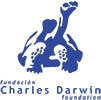environment jobs Est. in 1994. Delivering Environment Jobs for 31 years
This job listing is no longer active.
Please use our Environment Jobs Search to find current vacancies.
| Title | Scientist in Plant Ecology and Conservation |
| Posted |
|
|
|||||||||||||||||||||||||||||||
| Description |
The Charles Darwin Foundation for the Galapagos Islands is recruiting a Scientist in Plant Ecology and Conservation Deadline for application: 30st March 2022
Duration: Two years (possibility of renewal) Title: Scientist in Plant Ecology and Conservation Introduction One of the current research projects conducted by Charles Darwin Foundation for Galapagos Islands (CDF), is Galapagos Verde 2050 (GV2050). This is a long-term adaptive management-based initiative dedicated to terrestrial restoration and sustainability of agriculture. At doing so, we a) promote ecological restoration of degraded areas and conservation of endangered plant species by utilizing water-saving technologies, and b) promote sustainable agricultural practices among local farmers. Both components leverage the usage of large-scale experimental design that evaluate water-saving technologies as novel tools that increase the efficient usage of water in arid climates such as the Galapagos. These two components address the effects of habitat degradation, invasive species, and climate change and promote sustainable livelihoods in Galapagos. As a continuation of this research initiative, CDF is recruiting a Terrestrial Restauration, expert, ecologist, and plant conservation professional, for the GV2050 project. This professional will be committed to the conservation of the terrestrial ecosystems of Galapagos by building an exceptional research program in both, ecosystem restoration in the Galapagos National Park and sustainable agriculture in inhabited areas. By doing so, the project contributes to the conservation of the protected areas and the maintenance of sustainable local livelihoods in the Galapagos Islands. Position objective The early career professional to be hired will primarily be responsible to assist the Project Leader for overseeing the development of the ecological restoration component of this project, yet other responsibilities will include support to the sustainable agriculture component. Through their background in applied terrestrial ecology, the successful candidate will have the ability to reconcile experimental design, experimentation, implementation, data analysis, scientific writing, stakeholder relations, and the delicate balance among these goals. Required profile
Activities The selected candidate will report directly to the Principal Investigator (PI), leader of the GV2050 project. Throughout the duration of this position, the selected candidate will also work directly with the PI and the other members and volunteers of the GV2050 team. He/she will also interact with members of scientific teams of other projects at CDF. Other work may be required as directed by institutional or project objectives. The following are the primary activities for which the selected candidate will be responsible. 1. Designing research experiments and methodologies usage for all the project components and subprojects in collaboration with the project leader and rest of the team. 2. Conducting and assisting in data analyses on the cost-benefits and efficacy of the usage of water-saving technologies, which are used for the main project components (i.e. ecological restoration and sustainable agricultural practices). 3. Managing and maintaining project datasets with R and R-Shiny 4. Design and create illustrations, infographics, data visualizations both for scientific purposes, but also for communicating our findings to stakeholders and the broader public informative and materials based on results from both project components (ecological restoration and sustainable agriculture). 5. Present results/analyses/updates of the research to the team, as well as to local and national public, at scientific conferences and other related-public events. 6. Publishing scientific manuscripts in peer-reviewed journals. Expected to publish one and submit one peer-reviewed publication within the two years’ term of work, as first author, co- authored with the Galapagos Verde 2050 Project's Principal Investigator-Leader and other team members who participate in the research, according to the customary practices at scientific writing 7. Write technical and scientific progress or advance reports (in English or Spanish) or infographics and oral presentations about the project results for private and public collaborating institutions, stakeholders and donors. 8. Help with fieldwork on local and remote islands when needed, especially when planning and establishing new experiments and studies. 9. Advise other team members on experimental designs and overall scientific component of the project. 10. Provide assistance in all other activities that the GV2050 PI needs, as required for project advancement, focusing on strengthening all aspects of the project, and according to institutional goals.
Employment conditions:
The ecologist will be a full-time staff of the Charles Darwin Foundation, working under a “Employment contract by line of business” arrangement. They will directly report to the Galapagos Verde 2050 Project's Principal Investigator- Leader. The selected candidate will be based at the Charles Darwin Research Station (CDRS) on Santa Cruz Island in the Galapagos Islands, Ecuador. An Employment contract by line of business contracted by the Charles Darwin Foundation does not imply a continuous relationship for a duration longer than stated within the contract.
The ecologist is expected to work 40 hours a week from 07:45-12:30 and 14:00-17:15. Due to certain project activities, however, such as field trips, this schedule may be changed.
The ecologist will work according to the regulations and Manual of Procedures of the CDF, and will complete their field work strictly following the rules and regulations of the Galapagos National Park Directory (GNPD).
How to apply: Applicants should submit the following documents via e-mail to: ( gv2050@fcdarwin.org.ec; , patricia.jaramillo@fcdarwin.org.ec).
|
